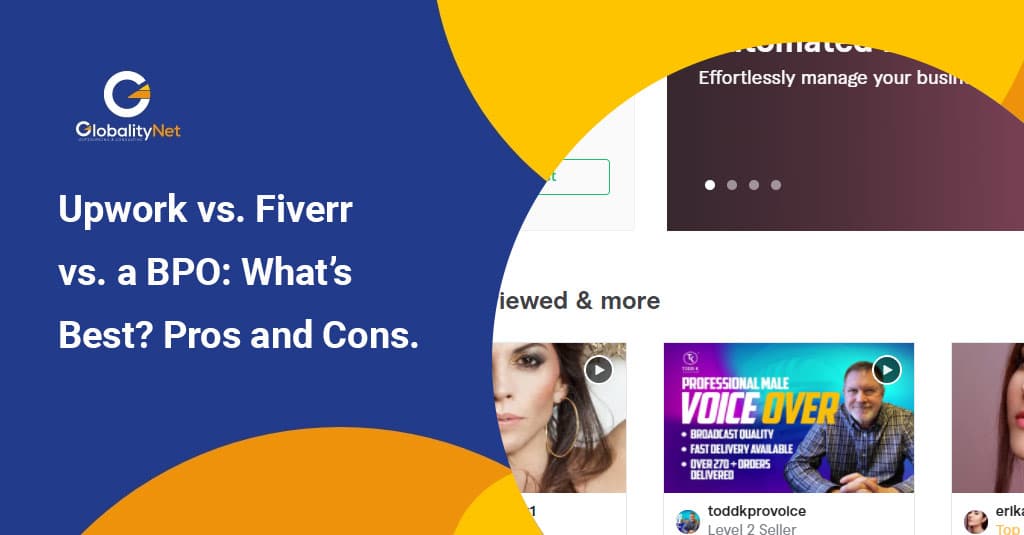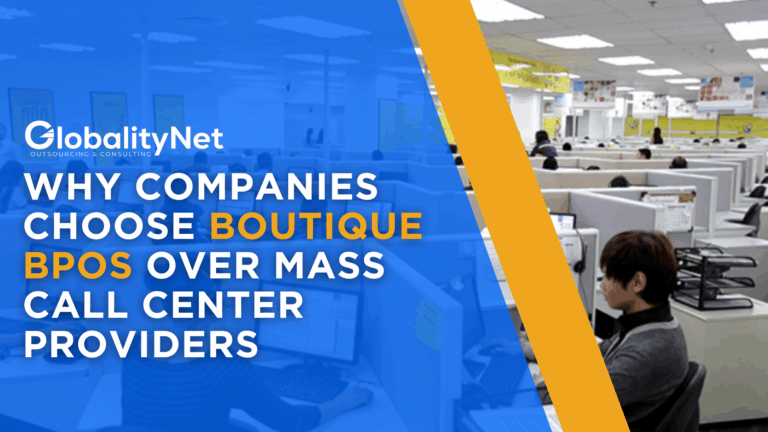For small and medium businesses (SMBs), outsourcing can be the key to scaling operations, reducing costs, and accessing specialized skills. The question is: which outsourcing model works best for your business? Platforms like Upwork and Fiverr are popular for hiring freelancers, while Business Process Outsourcing (BPO) providers offer more structured solutions. Let’s break down the PROs and CONs of each to determine why BPO outsourcing might be the preferred choice for SMBs.
Upwork: The Freelancer Marketplace
PROs:
- Wide Talent Pool: Upwork offers access to millions of freelancers globally, covering a variety of skills.
- Flexibility: Hire on a per-project or hourly basis, depending on your needs.
- Cost-Efficiency: Freelancers often offer competitive rates, particularly for short-term tasks.
CONs:
- Time-Consuming: Finding the right freelancer can involve sifting through profiles, reviewing proposals, and conducting interviews.
- Inconsistent Quality: Freelancer expertise varies widely, leading to potential risks in deliverables.
- Limited Accountability: Freelancers work independently, so ensuring deadlines and consistent performance can be challenging.
Fiverr: Quick and Cost-Effective
PROs:
- Affordable: Many services start as low as $5, making Fiverr an attractive option for small budgets.
- Speedy Turnaround: Great for one-off projects with tight deadlines.
- Pre-Set Packages: Buyers can easily see what they’ll get and how much it costs upfront.
CONs:
- Niche Focus: Fiverr is more suited for specific, smaller tasks (e.g., graphic design, content writing) rather than ongoing support.
- Quality Variability: As with Upwork, service quality can be hit-or-miss.
- Minimal Collaboration: Limited interaction often means less input on the process and outcomes.
BPO Outsourcing: A Comprehensive Solution
PROs:
- Scalability: BPO providers offer flexible solutions tailored to your growing needs, whether it’s customer service, supply chain management, or back-office operations.
- Consistency: Dedicated teams ensure high-quality, reliable performance.
- Time-Saving: With an established BPO partner, SMBs save time on recruitment, training, and management.
- Expertise: BPO providers specialize in delivering specific business processes with a focus on efficiency and cost savings.
- Long-Term Value: By outsourcing recurring functions, SMBs can focus on core competencies and strategic growth.
CONs:
- Initial Setup: Onboarding a BPO partner can require more time and planning upfront compared to hiring a freelancer.
- Cost for Small Tasks: For one-off projects, a BPO might not be as cost-effective as freelancers.
Why BPO Outsourcing Is the Best Choice for SMBs
While Upwork and Fiverr can be useful for short-term or specialized tasks, they lack the consistency and scalability SMBs need to grow sustainably. BPO outsourcing, on the other hand, provides a structured, professional approach to handling critical business functions.
Here’s why BPO stands out:
- End-to-End Solutions: BPO providers don’t just execute tasks; they bring strategic insights and operational improvements to your business.
- Focus on Growth: By outsourcing non-core functions, SMBs can direct resources to innovation and expansion.
- Reliability: With a dedicated team, you can expect consistent performance and accountability.
- Cost Efficiency: While the upfront cost might be higher, the long-term savings from increased efficiency and reduced errors are significant.
For SMBs looking to maximize their resources, BPO outsourcing offers unmatched advantages. While Upwork and Fiverr serve niche purposes, they can’t match the scalability, reliability, and strategic value that a trusted BPO partner provides.
If you’re ready to take your business to the next level, consider partnering with a BPO provider to streamline operations, reduce costs, and focus on what you do best: growing your business.







